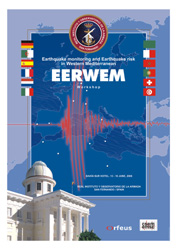Mediterranean earthquake intelligence
North Africa and southern Europe represent a region around the Mediterranean that is often prone to earthquakes. At the same time, many of these countries do not have the knowledge or technology required to monitor and measure earthquakes, or to assess the risks involved. The EU-funded project 'Earthquake monitoring and earthquake risk in western Mediterranean' (Eerwem) established an important platform for exchange among seismological communities in Europe and north Africa. This project ensures enhanced exchange of results and ongoing monitoring of the tectonic system of the Eurasia-Africa collision. A project workshop in Spain brought researchers from key European earthquake research centres and observatories, combining European rapid data exchange with newly created infrastructure at the Western Mediterranean seismological institutes. Participants discussed seismic risks and activity in the region, enjoying representation from several Mediterranean countries including Algeria, Libya, Monaco, Morocco and Tunisia. The project also fostered links with the Global Earth Observation System of Systems (GEOSS), Global Monitoring of Environment and Security (GMESS) and North-East Atlantic and Mediterranean Tsunami Warning System (NEAMTWS). It then produced a memorandum of understanding (MoU) on improving global cooperation and building a regional network for earthquake surveillance, as well as facilitating access to advanced technologies. The MoU was signed by 18 institutes from 10 countries, leading to enhanced cooperation, multiple technical visits among seismological observatories and a dearth of papers on the subject. The project was deemed highly successful in achieving its aims, resulting in the surveillance infrastructure being upgraded in many countries. Importantly, regional players in Algeria, Morocco and Tunisia laid the groundwork for establishing a tsunami warning system for the western Mediterranean. Finally, a long-term seismological strategy for the region has started to take shape.







